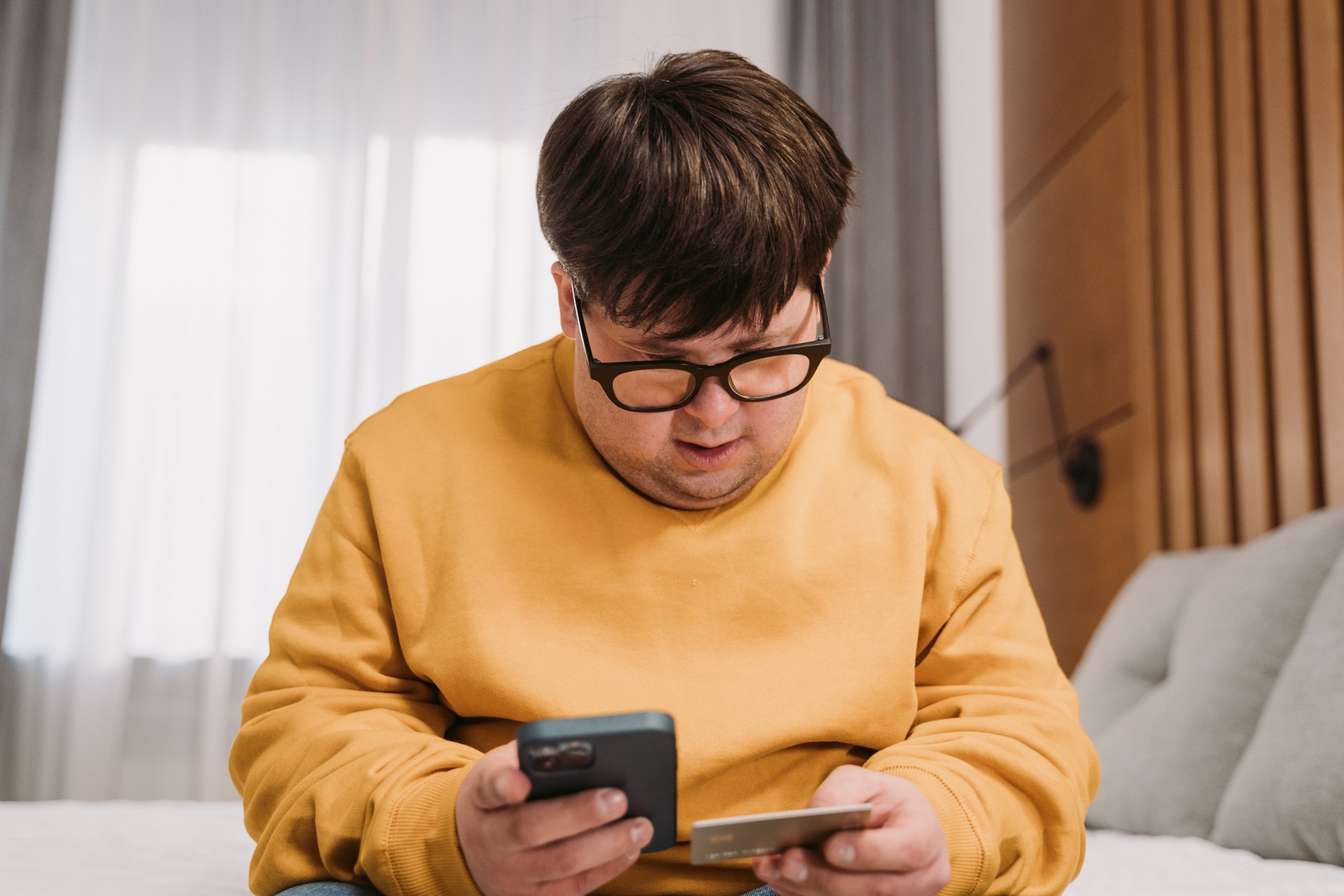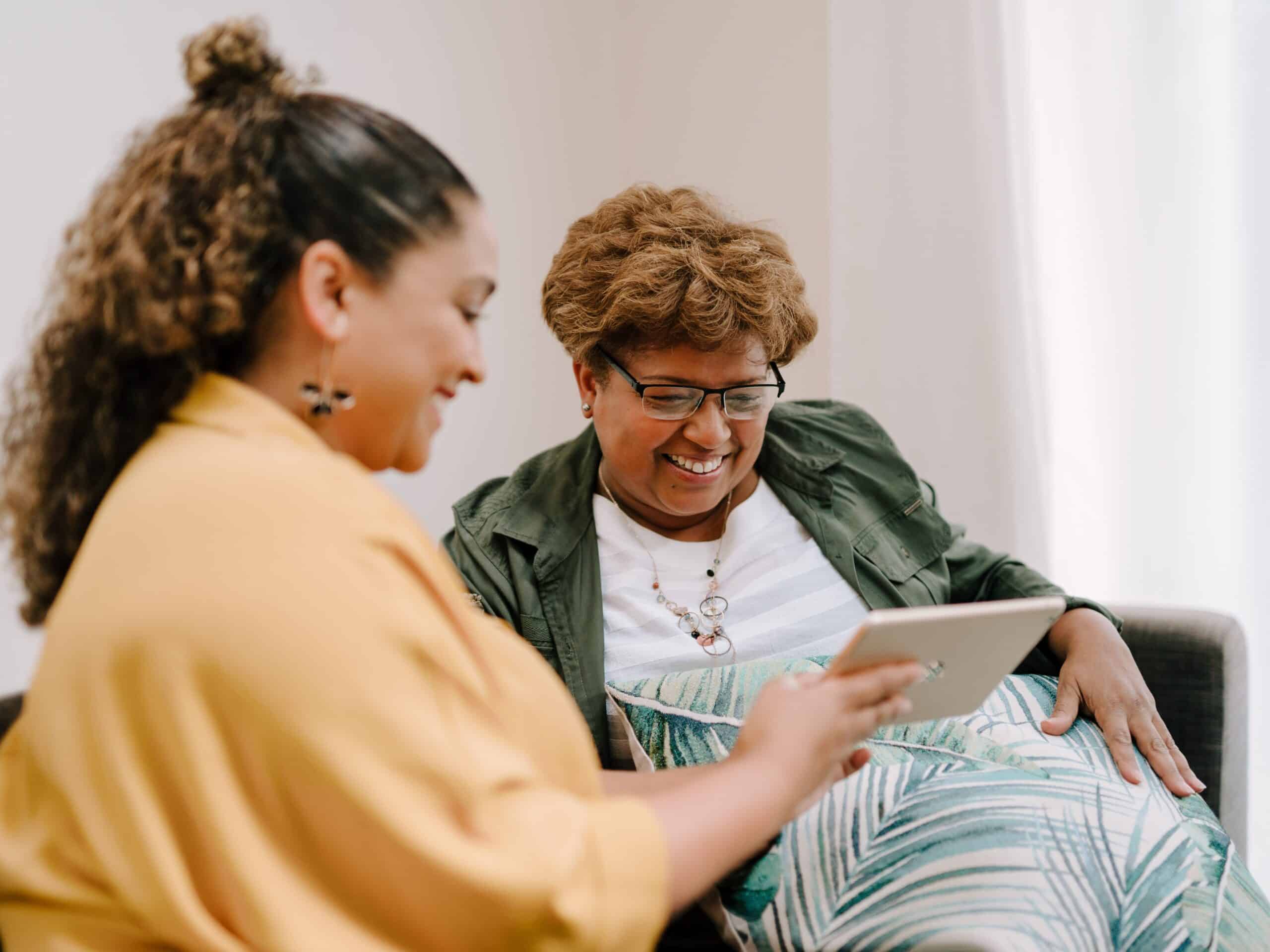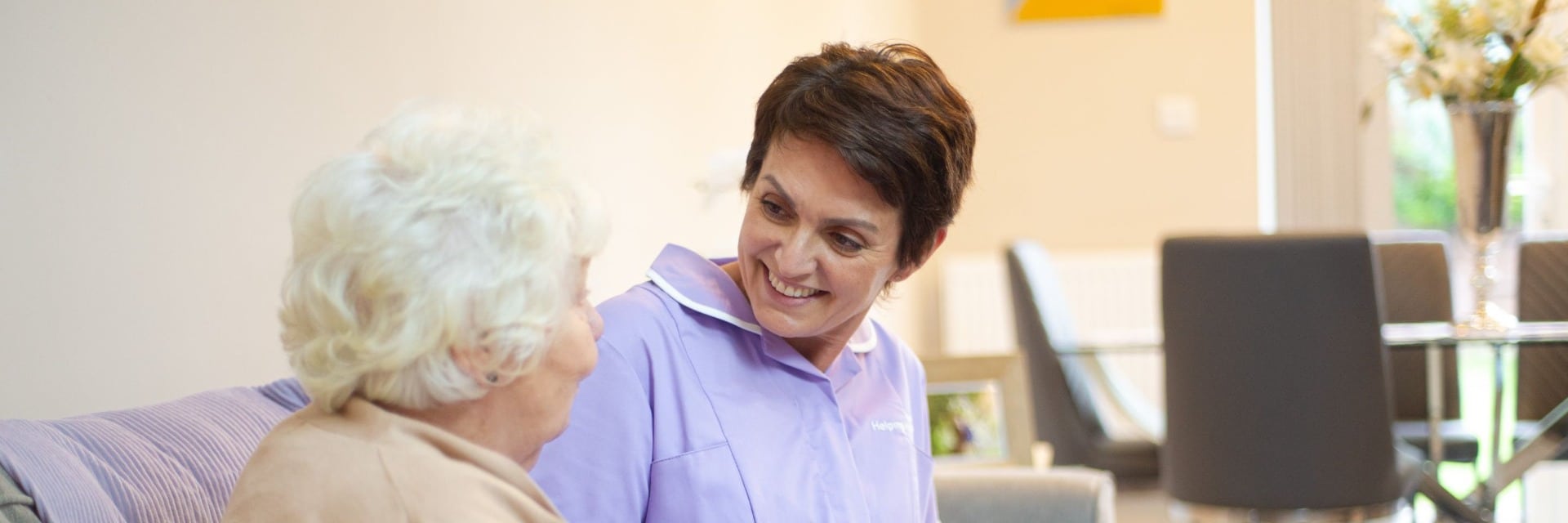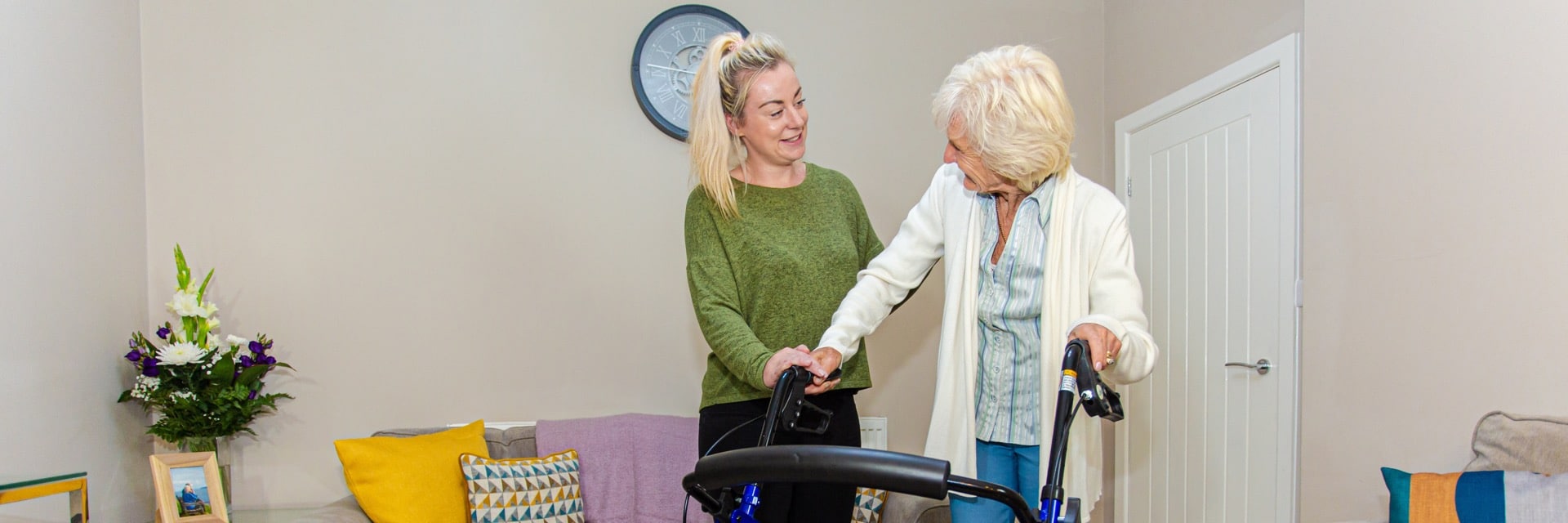How can assistive technology help dementia patients?

What is assistive technology within dementia?
According to the Alzheimer’s Society, “Assistive technology refers to devices or systems that help maintain or improve a person’s ability to do things in everyday life.”
This technology can help your loved one with various symptoms, including memory and mobility. It can also assist with communication and more importantly, maintain your loved one’s independence for as long as possible. Plus, it will give you the reassurance you need.
Different types of assistive technology available include smartphones, tablets, smart home systems, and even electronic pill boxes that remind you when to take your medication.
Here’s a little more information on what is available and how assistive technology can help your loved one in their day-to-day life.

Examples of assistive technology for dementia patients
There are plenty of devices available on the market that can help your loved one remain active and independent. Here are a few aids that can support them.
Reminder devices
Living with dementia can have an impact on memory and can be the most difficult part of the condition. It may be distressing when individuals become forgetful, but reminder devices are available to help with this.
You can buy devices known as talking reminders, like Alexa, where you can record and playback multiple voice messages. So, if your loved one needs to put in a reminder for an appointment or something on the shopping list, these devices will come in handy.
You can also purchase a dementia reminder clock with task alerts. So, it will alert your loved one when they need to complete a specific task.
Virtual reality
Virtual reality has become a positive therapy tool for individuals living with dementia. VR headsets allow individuals to immerse themselves in a different reality and relive memories. It can provide those living with dementia, help to trigger distant memories and feel like they are there.
The Wayback is a virtual reality film series that allows individuals to relive special memories and connect more with loved ones at home. This series includes the Queen’s Coronation in 1953, which focuses on a street party celebration, and England’s World Cup victory in 1966, with scenes in a pub and living room – an amazing initiative.
Communication aids
According to The East Dunbartonshire Dementia Network, “Communication difficulties can be challenging due to symptoms such as memory loss, difficulty finding words or inappropriate words, problems with reasoning, repetition of words and phrases and behaviour.”
There are plenty of aids that can make life easier for your loved one. You can encourage them to keep a diary of appointments, place a timetable on the wall or fridge, label cupboards and have important phone numbers written down for them by their phone. For more technological communication devices, smartphones and tablets are great ways of keeping in touch with loved ones, especially via video calls.
Safety monitoring
We all worry about our loved ones’ safety, especially if they are living with dementia. Therefore, it is essential to ensure your loved one’s safety in their home. So, make sure smoke and carbon monoxide detectors are in working order.
You can also monitor your loved one’s safety via personal alarms. These allow them to alert a family member or emergency services when they need help. Fall detectors can also be built into the alarm, or these can be purchased separately. Home monitoring systems that include door and window sensors are also an option. These can alert you when your loved one leaves the house, when appliances have been left on, the room temperature and much more.
GPS tracking devices
Losing independence can significantly impact our mental health, no matter what condition you are living with. This is why a GPS tracker allows your loved one to go for a walk without worrying about where they are. It can also give you the much-needed reassurance of knowing they are safe.
GPS devices are available as watches, keyrings, or lanyards, which your loved one can wear around their neck. You can even download GPS tracker apps to your loved one’s phone to track their movements.
Medication management tools
We understand that dementia can impact your memory, and your loved one may forget to take their medication. However, aids are available to help manage this.
You can purchase automatic pill dispensers, which can be prefilled and dispense medication at set times of the day. It may also be worth encouraging your loved one, if they can, to note down the name of the medication and when you have taken it. If they experience any side effects, they can jot this down too.
Where can you get this technology?
There are plenty of ways you can buy assistive technology. Here’s how…
Why is assistive technology beneficial for dementia patients?
Assistive technology has allowed individuals living with dementia to carry out everyday tasks on their own.

Having assistive technology has many benefits; it can help your loved one stay independent for as long as possible.
It can:
Help maintain routine
Support with memory loss
Keep your loved one safe
Help communicate with family and friends
Allow loved one's to interact and socialise
Give you peace of mind
Learn more about dementia care from Helping Hands
At Helping Hands, we are widely recognised for providing exceptional dementia care at home.
We provide dementia care on a visiting care and live-in care basis. All our dementia care packages are flexible and fully bespoke to your loved one’s needs. Plus, we have partnered with The Alzheimer’s Society to provide dementia training, so our carers can provide outstanding care. Here are more details on our care plans.

Visiting care allows your loved one to receive care a few times a week, ideal for those who need support little and often.
Visits from as little as 30 minutes a week
Remain at home
Person-centred care

Live-in care provides your loved one with 24 hour support, so there will always be someone by their side.
Around-the-clock support
Maintain routine
A genuine companion
Page reviewed by Rebecca Bennett, Regional Clinical Lead, on April 22, 2024.